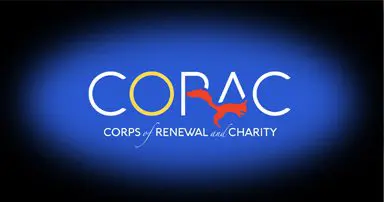Long term food storage is a vital tool to help you overcome challenges that come your way in everyday life, as well as for emergency preparedness. An emergency supply of life-sustaining long term storage foods should be prudently prepared once you have a 3 month supply of foods, that you consume every day, housed in your pantry. This guide will help you understand basic survival foods and long-term storage requirements for 10-25 years.
BACKGROUND
This sheet gives information about basic types of SURVIVAL FOODS plus instructions for packaging dried foods for long term storage, lasting between 10-25 years.
Here are basic items that are essential for survival or are practical because they have good nutrient content or have multiple uses.
- Water (and water filtration)
- Salt
- Honey
- Oats, rolled
- Beans (& legumes)
- Rice (& quinoa)
- Flour (& yeast)
- Meat & fish, canned
- Popcorn
- Pasta (spaghetti is efficient shape)
- Eggs, powdered
- Milk, powdered
- Potatoes, dehydrated
- Vitamins & minerals
- Apple cider vinegar
- Alcohol (vodka)
- Ghee (clarified butter)
- Bonus: Spices & seasoningseries for medical supplies like hearing aids or blood sugar monitors
Notes
- We need to drink 2-3 quarts of water a day. Much more is needed for cooking and washing. Keep several large containers of water in your home. Rotate every 6-12 months. An earthquake or power loss may disrupt municipal water or make it unsafe.
- Salt is vital. Store between 5 to 8 pounds per person per year.
- Buy jars of honey from local sellers. Avoid honey from Walmart or grocery stores if possible.
- Other uses for honey: treat burns, topical antibacterial for small cuts and mosquito bites, soothes cough, better sweetener for diabetics.
- If meat, eggs, or milk (complete proteins) are unavailable, a meal combining BEANS and RICE provides all 9 essential amino acids.
- Apple Cider Vinegar (acetic acid): topical antifungal/antibacterial, household cleaner, flea/tick repellent. (Caution while taking insulin or certain diuretics)
- Vitamins and minerals: A, C, D, Ca+ and zinc are important, but this topic is too broad to discuss here. Store a variety of specific vitamins you require or get multivitamins to supplement what may be lacking in an inadequate diet.
- Alcohol, especially vodka: fire starter, alcohol stoves, hand sanitizer, antiseptic.
Below are DYI instructions for making food packs using 1-gallon Mylar bags. Though not the most efficient for stacking, these smaller packs are IDEAL TO DISTRIBUTE to many peopleand are EASY TO CARRY in backpacks by those on foot. They can also be used for barter. Know that much larger 5-gallon Mylar bags and buckets with gamma lids are other options.
MAKING MYLAR PACKS OF DRIED FOOD
Foods such as oats, beans, rice, wheat, pasta, popcorn, freeze-dried foods, sugar, salt, cereal, powdered milk, etc can last 10+ years. NEEDED ITEMS:
- Mylar bags, 1-gal, 10”x14”, 5- or 7-mil thick
- Oxygen (O2) absorbers, 300 or 500 cc
- Scoop and maybe a funnel
- Clothes iron or hair straightener
- Permanent marker
- PREP. Set up your assembly line. Open Mylar bags (but NOT O2 absorbers yet!) Find a box that can stand the Mylar bags upright – or ask a friend to help.
- FILL THE BAGS. Using a scoop, fill Mylar bags to about 4” from the top. Shake the contents down, add a little more. Do not overfill. Leave room at top.
- PUT OXYGEN ABSORBER ON TOP OF FOOD. Use one or two 300cc OR one 500cc absorber per bag. Do not leave O2 absorbers exposed to air more than 30 minutes. Use them all or reseal them ASAP.
- SEAL MYLAR BAGS. Expel as much extra air as you can. Then use a hot iron or hair straightener to seal the open end. This may take practice. Squeeze the bag to ensure it does not have leaks.
- LABEL BAGS. Some will label the bags before step 2. Write name of contents and date: “RICE, 05/2021”
Next day, the bags may look vacuum-sealed, but not always because air contains a lot of nitrogen.
REMEMBER: Mylar bags are NOT rodent proof, so place in a sealed plastic tote.
FOODS that only last 2-5 years: whole-wheat flour, pearl barley, brown rice, brown sugar, potato chips, granola, jerky, seeds/nuts, need more frequent rotation.
INTERNET SOURCE:
www.primalsurvivor.net/mylar-bags-food-storage

























0 Comments